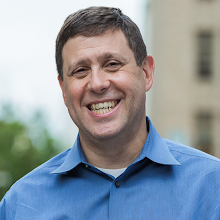I found the points he made about libertarians and communatarians quite intrigueing, since this sounds more like a reasonable ideological debate, rather than just putting the GOP up against the Dem's and seeing what ideas sticks to which party.
I would love to see more people step up and declare themselves as libertarians as I have (and those quoted below) or as communitarians, rather than sticking strictly with traditional party labels. This will at least allow some flexibility in how we are viewed and perceived.
Here are some of the letters that were published in response to this essay. I found them all interesting to see other libertarians out there coming at this issue from different directions. It really makes me feel that this movement, perhaps with Ron Paul at the forefront, might be beginning to make some serious waves in 2008. I have emphasized some points, I find interesting:
Michael Kinsley began his essay "Libertarians Rising" by offering what he called an oversimplified contrast: Democrats are for Big Government, whereas Republicans are against it. But both parties are for Big Government; they merely differ on how to use it. Democrats would legislate compassion. Republicans would legislate morality. Libertarians would legislate neither. That is the difference in a nutshell. - Mark Hanley, SKAMANIA, WASH.
Kinsley implied that Libertarians emphasize the individual over society. We all need bread from the baker, meat from the butcher and family and friends for support and fellowship. All of this occurs spontaneously, without government's managing it. Yes, a limited government is needed to defend liberty and property, but this only creates the framework in which free people create society. Kinsley equates government with society, and that's what separates statists from libertarians. - Mark Gibb, LEAGUE CITY, TEXAS
Kinsley portrayed Libertarians as self-centered isolationists. Libertarians believe the government should trade and interact with other nations freely but not make alliances. And they do care about other countries--they just don't believe that U.S. citizens' tax dollars should be spent on other nations. If individuals want to help other countries voluntarily, that's their right. Other than those points, it was a good article. Thanks for giving Ron Paul more exposure. Ryan McDonald, MANKATO, MINN.
Libertarianism is on the rise because the Democratic and Republican parties have been grotesquely distorted by their misguided leaders. The Libertarian Party is attractive because Democrats want to create a nanny state and Republicans want to extend the U.S. empire to the Middle East. The Libertarian Party should change its name to the Liberationist Party, because of its efforts to free Americans from the corrupted Democrats and Republicans. H. Ann Tackett, - FULLERTON, CALIF.
Mischaracterizing Libertarians as "against government in all its manifestations" simply alienates people. I know many constitutionalist libertarians who by definition support and love the idea of limited government for certain purposes, as specified in the Constitution. How could we love the Constitution and be against government in all its manifestations? My wife and I are active members of the community, so the idea that we are against community is completely wrong. We are against coercive policies enforced in the name of community. How could you call an act of giving charity if it was not done by choice? Ben Orona, - NEW PORT RICHEY, FLA.
Here is full Kinsley essay:
To oversimplify: Democrats are for Big Government; Republicans are against it.
To oversimplify somewhat less, Democrats aren't always for Big Government, and Republicans aren't always against it. Democrats treasure civil liberties, whereas Republicans are more tolerant of government censorship to protect children from pornography, or of wiretapping to catch a criminal, or of torture in the war against terrorism. War in general and Iraq in particular--certainly Big Government exercises--are projects Republicans tend to be more enthusiastic about. Likewise the criminal process: Republicans tend to want to make more things illegal and to send more people to jail for longer. Republicans also consider themselves more concerned about the moral tone of the country, and they are more disposed toward using the government in trying to improve it. In particular, Republicans think religion needs more help from society, through the government, while Democrats are touchier about the separation of church and state.
Many people feel that neither party offers a coherent set of principles that they can agree with. For them, the choice is whether you believe in Big Government or you don't. And if you don't, you call yourself a libertarian. Libertarians are against government in all its manifestations. Domestically, they are against social-welfare programs. They favor self-reliance (as they see it) over Big Government spending. Internationally, they are isolationists. Like George Washington, they loathe "foreign entanglements," and they think the rest of the world can go to hell without America's help. They don't care--or at least they don't think the government should care--about what people are reading, thinking, drinking, smoking or doing in bed. And what is the opposite of libertarianism? Libertarians would say fascism. But in the American political context, it is something infinitely milder that calls itself communitarianism. The term is not as familiar, and communitarians are far less organized as a movement than libertarians, ironically enough. But in general communitarians emphasize society rather than the individual and believe that group responsibilities (to family, community, nation, the globe) should trump individual rights.The relationship of these two ways of thinking to the two established parties is peculiar. Republicans are far more likely to identify themselves as libertarians and to vilify the government in the abstract. And yet Republicans have a clearer vision of what constitutes a good society and a well-run planet and are quicker to try to impose this vision on the rest of us. Now that the Republican Party is in trouble, critics are advising it to free itself of the religious right on issues like abortion and gay rights. That is, the party should become less communitarian and more libertarian. With Democrats, it's the other way around.
Very few Democrats self-identify as libertarians, but they are in fact much more likely to have a live-and-let-live attitude toward the lesbian couple next door or the Islamofascist dictator halfway around the world. And every time the Democrats lose an election, critics scold that they must put less emphasis on the sterile rights of individuals and more emphasis on responsibilities to society. That is, they should become less libertarian and more communitarian. Usually this boils down to advocating mandatory so-called voluntary national service by people younger than whoever is doing the advocating.
Libertarians and communitarians (to continue this unjustified generalizing) are different character types. Communitarians tend to be bossy, boring and self-important, if they're not being oversweetened and touchy-feely. Libertarians, by contrast, are not the selfish monsters you might expect. They are earnest and impractical--eager to corner you with their plan for using old refrigerators to reverse global warming or solving the traffic mess by privatizing stoplights. And if you disagree, they're fine with that. It's a free country.
The chance of the two political parties realigning so conveniently is slim. But the party that does well in the future will be the one that makes the better guess about where to place its bets. My money's on the libertarians. People were shocked a couple of weeks ago when Ron Paul--one of those mysterious Republicans who seem to be running for President because everyone needs a hobby--raised $5 million from July through September, mostly on the Internet. Paul is a libertarian. In fact, he was the Libertarian Party presidential candidate in 1988. The computer revolution has bred a generation of smart loners, many of them rich and some of them complacently Darwinian, convinced that they don't need society--nor should anyone else. They are going to be an increasingly powerful force in politics.









4 comments:
Hello,
I am one of the people whose comments are published in Time, but I hadn't yet seen the printed version (Time emailed me to say they were going to print my short letter).
It's interesting to me that the editors changed my letter somewhat, I think changing the meaning a little. Here's what I originally wrote:
Mr. Kinsley,
At the end of your article, you imply that libertarians think that no one needs society to function.
This is an error. I am a libertarian, and I am totally dependent on a smoothly functioning society. I need bread from the baker, meat from the butcher, and a network of family and friends for support and fellowship. All of this occurs spontaneously, without a government managing it.
Yes, a limited government is needed to defend liberty and property, but this only creates the framework in which free people create society.
You simply equate government and society, and this is what separates statists like you from libertarians like me.
Mark,
Thanks for the comment and the revision. I got the issue this weekend. It is the one with the IPOD on the cover.
I do see the differences you are referring to. I have certainly experienced this on a local level, when writing to the editor of the paper. They cut it what you write to fit their needs, not necessarily your opinion.
Thanks again for the comment.
Jeff
What about those of us who are personally communitarian, but politically libertarian? In fact, being pro-big government is typically being anti-communitarian insofar as you are trying to replace community with government.
Dr. T,
I would be interested in hearing more about how one can be personally communaritarian and politically libertarian. That is a very unusual combination.
My interpretation is that losing individual liberties for the good of society while also reducing the size and scope of the government in the process. I would think that if you could acheive communitarian ideals, without government interference or oversight, you might be onto something. Though, this does sound a lot like Socialism. Let me know how you marry these two ideals together.
Thanks for the comment
Jeff
Post a Comment